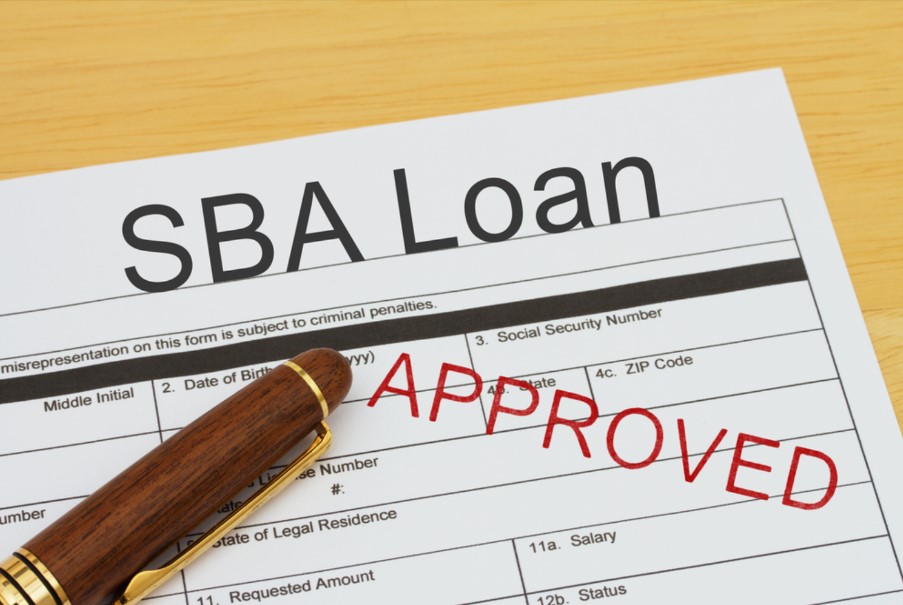
Overview of SBA Loans
SBA loans for small business are designed to offer a lifeline to enterprises that might find accessing traditional funding difficult. Administered by the Small Business Administration, these loans provide critical financing that can be used for a variety of purposes including starting a business, expanding an existing one, purchasing inventory, or refinancing other debts.
The primary benefits of SBA loans include lower down payments, longer repayment terms, and more flexible requirements than conventional loans. This makes them particularly appealing to small business owners who need access to capital but may not qualify for loans from commercial banks. SBA loans are designed to encourage lenders to provide funds to small businesses by guaranteeing a portion of the loan amount. This reduces the risk to lenders and encourages them to extend credit they might otherwise deem too risky.
For small business owners, understanding how to navigate the landscape of SBA loans can open up new opportunities for growth and stability. These loans are not only tools for immediate financial needs but also stepping stones for long-term business planning and success. As you consider financial options, integrating SBA loans into your strategy could provide the necessary support to help your business thrive.
Types of SBA Loans
The Small Business Administration (SBA) offers several types of loans tailored to meet different business needs. Understanding these can help you decide which is best for your situation.
The 7(a) loan program is the SBA’s most popular option. It’s designed for general business purposes, including working capital, equipment purchase, debt refinancing, or even buying real estate. With maximum loan amounts up to $5 million, the 7(a) provides flexibility and a safety net for various business expenses.
Next, the 504 loan program focuses specifically on economic development. These loans are perfect for purchasing major fixed assets, such as land and buildings, that promote business growth and job creation. A 504 loan is generally structured with the business putting down 10%, a bank covering 50%, and the SBA providing 40% through a certified development company.
For smaller scale needs, the SBA microloan program offers up to $50,000 to help small businesses start up and expand. These microloans are ideal for smaller purchases like furniture, inventory, or machinery. The microloan program also provides businesses with access to technical assistance, which can be a valuable resource for navigating the early stages of business growth.
Each of these loan types serves a unique purpose, making SBA loans for small business a versatile tool for those looking to start or expand their operations. Choosing the right type depends on your specific business needs, how much you need to borrow, and what you intend to finance. With the right approach, an SBA loan can provide the financial backing to push your business forward.
Eligibility Requirements
Understanding the eligibility requirements for SBA loans is crucial for small businesses seeking financial support. To qualify for SBA loans for small business, there are several criteria that you must meet.
First, your business must operate for profit within the United States or its territories. It’s essential that you have invested your own time and money into the business, demonstrating an owner’s equity investment. This shows lenders your commitment to the business’s success.
Additionally, your business should fall within the size standards set by the SBA. These standards vary by industry and are based on the number of employees or the average annual receipts. You can find specific details on what defines a small business in your industry on the SBA’s website.
Credit history also plays a significant role in determining eligibility. You and your business must have a history of fulfilling financial obligations. This includes not only your business loans but also credit cards, rental agreements, and utility bills.
Finally, the SBA requires that you exhaust other financial resources, including personal assets, before seeking a loan. This is often referred to as the ‘credit elsewhere test,’ proving that the loan is your last resort for funding.
Meeting these criteria does not guarantee approval, but it positions your business as a strong candidate for an SBA loan. Always consult directly with the SBA or an approved lender to ensure you meet all specific requirements and to get guidance tailored to your particular situation.
Application Process
Applying for SBA loans for small business involves a detailed process with several important steps and necessary documentation. To begin, identify which SBA loan program best suits your needs, whether it’s a 7(a) loan, a 504 loan, or a microloan.
First, prepare your business plan. This document is crucial as it outlines your business strategy, financial projections, and how you intend to use the loan. Next, compile financial statements, including profit and loss statements, balance sheets, and cash flow statements. These provide lenders with a snapshot of your business’s financial health.
You will also need to gather personal financial information, including recent tax returns, personal financial statements, and details of existing debts. This helps lenders assess your personal credit history and financial responsibility.
Approach an SBA-approved lender to discuss your loan options. They will guide you through the application process and tell you which SBA forms and additional documents are required. These might include articles of incorporation, leases, contracts, licenses, and permits depending on your business type.
The timeline for processing an SBA loan can vary, typically taking anywhere from a few weeks to several months. Be prepared for this duration, and ensure all your documentation is thorough and accurate to avoid delays.
Throughout the application process, maintain clear and consistent communication with your lender. This will help you navigate any complexities and increase your chances of a successful loan application.
Tips for Successful SBA Loan Applications
Securing an SBA loan for your small business can be a game-changer, and there are specific strategies you can employ to increase your chances of approval. Key areas to focus on include your credit standing, business plan, and the thoroughness of your application.
First, ensure your credit history is in good shape. For SBA loans, lenders consider both your personal and business credit scores. Before applying, check your credit reports for any errors that might affect your scores negatively and address these issues promptly. Maintaining a strong credit score reassures lenders of your reliability and commitment to repaying debts.
A well-crafted business plan is crucial. It should clearly articulate your business concept, the market opportunity, operational structure, financial projections, and how you intend to use the loan. A robust business plan not only demonstrates your business acumen but also shows your strategic planning and preparedness, which are key to gaining a lender’s trust.
Be meticulous with your loan application. Ensure every piece of required documentation, from financial statements to legal documents, is complete and accurate. Missing or incorrect information can delay the process or lead to a denial of your application.
Engage proactively with your lender. Ask questions to understand all aspects of the loan process and show them that you are thorough and serious about your proposal. Demonstrating your knowledge about your business and the market you operate in can significantly influence their decision.
By focusing on these areas, you will strengthen your application for SBA loans for small business, positioning yourself as a capable and dependable borrower ready to grow your business.
Common Mistakes to Avoid When Applying for an SBA Loan
When applying for SBA loans for small business, certain pitfalls can hinder your success. Awareness of these common errors can significantly improve your chances of approval.
One frequent mistake is lacking a detailed business plan. This document is crucial as it demonstrates your vision, strategy, and financial planning. Ensure your business plan is thorough, covering all aspects from market analysis to financial projections and marketing strategies.
Another error is underestimating the amount of documentation required. SBA loans often need detailed financial records, legal documents, and proof of collateral. Organize your documents early and review them for accuracy to prevent delays or rejection.
Many applicants fail to understand their credit requirements. Before applying, check your credit report for any inaccuracies and take steps to improve your score if necessary. A good credit score strengthens your loan application by demonstrating your reliability in managing debt.
Also, avoid approaching only one lender. Different lenders might offer varying advantages, and some are more experienced in processing SBA loans than others. Research and engage with multiple lenders to find the best fit for your business needs.
Lastly, don’t rush the process. Thorough preparation takes time but is essential for a successful loan application. Rushing through your application can cause oversights that you could easily avoid with more careful planning.
By avoiding these common mistakes, you enhance your application’s strength and move closer to securing an SBA loan, setting a solid foundation for your business’s growth.
Conclusion
In summary, navigating the intricacies of SBA loans for small business requires a well-prepared approach and an understanding of the essential criteria and procedures. By familiarizing yourself with the types of loans available, meeting eligibility requirements, and meticulously preparing your application, you can enhance your chances of securing the financial support your business needs to grow. Remember to avoid common pitfalls such as incomplete documentation and inadequate business plans. Take the time to carefully gather your information, consult with financial experts if necessary, and choose the right lender for your needs. With the right preparation and understanding, SBA loans can be a valuable resource to help propel your business forward.
To apply for an SBA loan, click here: SBA Loans


